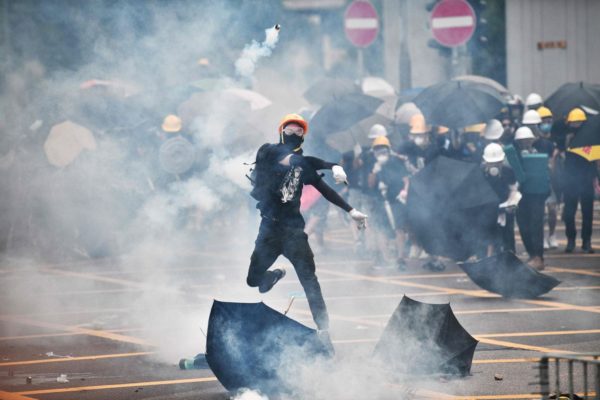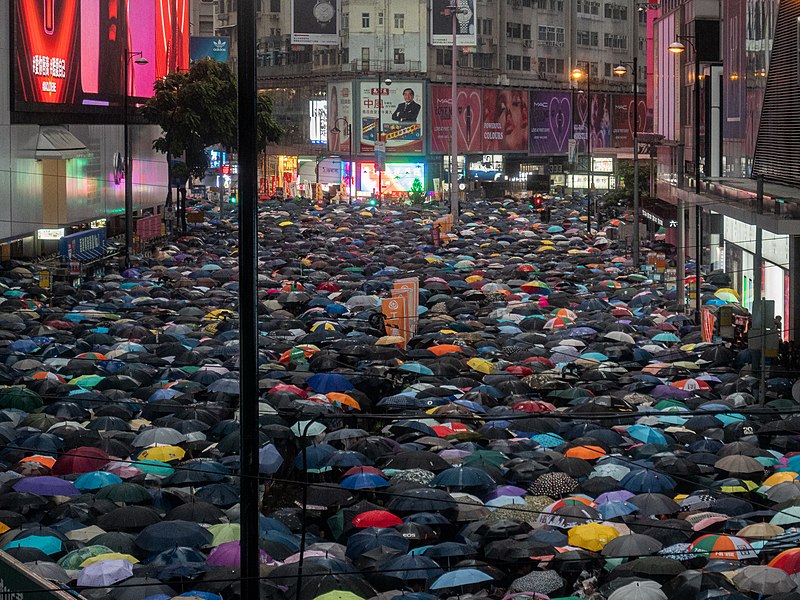
President Donald Trump has signed The Human Rights and Democracy Act into law as a support for pro-democracy protesters in Hong Kong.
The bill mandates an annual review, to check if Hong Kong has enough autonomy to justify its special status with the US.
President Trump said he signed the law “out of respect for President Xi [Jinping], China, and the people of Hong Kong”.
He is currently seeking a deal with China, in order to end a trade war between the two countries.
Meanwhile, China’s foreign ministry threatened “counter measures” if the US continued “going down the wrong path”.
The Chinese foreign ministry statement said: “The US has been disregarding facts and distorting truth.
“It openly backed violent criminals who rampantly smashed facilities, set fire, assaulted innocent civilians, trampled on the rule of law, and jeopardized social order.”
The foreign ministry summoned the US ambassador to demand that Washington stops interfering in Chinese internal affairs.
Hong Kong’s government also reacted, saying the American bill would send the wrong signal and would not help to ease the situation.
However, a key activist in the Hong Kong protest movement, Joshua Wong, said the US law was a “remarkable achievement” for “all Hongkongers”.
Hong Kong Elections 2019: Voters Turn Out in Record Numbers for District Council Polls
Hong Kong Protests: Five Injured in Knife Attack at Cityplaza Mall
Hong Kong Protests: Police and Protesters Clash in 13th Straight Weekend
President Trump had previously been non-committal about whether he would sign the bill, saying he was “with” Hong Kong but also that President Xi was “an incredible guy”.
However, the bill had widespread congressional support, which meant that even if he vetoed it, lawmakers could potentially have voted to overturn his decision.
President Trump also signed a second bill, which bans the export of crowd-control munitions to the police in Hong Kong – including tear gas, rubber bullets and stun guns.
He said: “[The bills] are being enacted in the hope that leaders and representatives of China and Hong Kong will be able to amicably settle their differences, leading to long-term peace and prosperity for all.”
The bill was introduced in June in the early stages of the protests in Hong Kong, and was overwhelmingly approved by the House of Representatives last month.
It says: “Hong Kong is part of China but has a largely separate legal and economic system.
“The [annual review] shall assess whether China has eroded Hong Kong’s civil liberties and rule of law as protected by Hong Kong’s Basic Law.”
Among other things, Hong Kong’s special trading status means it is not affected by US sanctions or tariffs placed on the mainland.
The bill also says the US should allow Hong Kong residents to obtain US visas, even if they have been arrested for being part of non-violent protests.
Hong Kong’s protests started in June against a proposed law to allow extradition to mainland China but it has since transformed into a larger pro-democracy movement.
The protests have also seen increasingly violent clashes, with police being attacked, and officers firing live bullets.
The last week elections saw a landslide victory for the pro-democracy movement, with 17 of the 18 councils now controlled by pro-democracy councilors.
